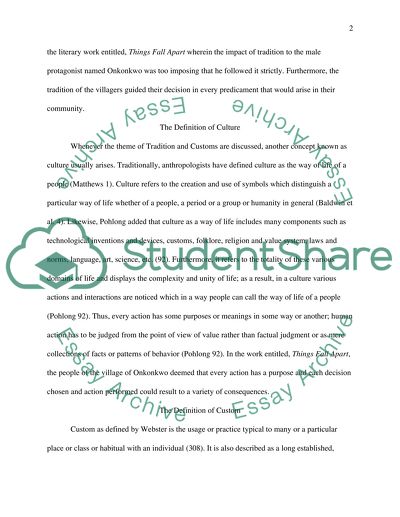Cite this document
(“Tradition and Customs in Things Fall Apart Term Paper”, n.d.)
Retrieved from https://studentshare.org/literature/1439834-things-fall-apart
Retrieved from https://studentshare.org/literature/1439834-things-fall-apart
(Tradition and Customs in Things Fall Apart Term Paper)
https://studentshare.org/literature/1439834-things-fall-apart.
https://studentshare.org/literature/1439834-things-fall-apart.
“Tradition and Customs in Things Fall Apart Term Paper”, n.d. https://studentshare.org/literature/1439834-things-fall-apart.


